November 2004 PBAC Outcomes - Subsequent Decisions not to Recommend
| Drug and Form | TGA Indication | Current PBS Listing | Listing Requested by Sponsor | PBAC Outcome and Comments |
|---|---|---|---|---|
| Insulin Glargine 3 mL cartridge, 100 units in 1 mL, and vial 10 mL, 100 units in 1 mL, Lantus®
Aventis Pharma Pty Ltd |
Treatment of type I and type II diabetes mellitus in adults who require insulin for
the control of hyperglycaemia.
Treatment of type 1 diabetes mellitus in children aged 6-15 years. |
Not PBS listed | The PBAC rejected the submission because of uncertain but modest extent of clinical
benefit and unfavourable albeit uncertain cost effectiveness.
. |
|
| Authority required listing for the treatment of type 1 and type 2 diabetic patients
who have inadequate blood glucose control or recurrent unexplained severe hypoglycaemia;
and for the treatment of type 1 and type 2 patients who were receiving insulin glargine
prior to PBS listing who met the above criteria at the time that treatment with insulin
glargine was commenced.
Authority required listing for the treatment of insulin dependent diabetes in children under the age of 18 and to those who are part of the current Commonwealth special access program supplying pharmaceutical benefits to remote Aboriginal Health Services. |
PBAC noted that the patients in the trials were not representative of the severe patients for whom listing was sought. PBAC indicated its preference for a listing in a broader population, but not at the price requested. | |||
| Comparator: NPH (neutral protamine hagedorn) Insulin | Accepted | |||
| Clinical claim:
Insulin glargine is significantly more effective than NPH insulin and has less toxicity |
Rejected. PBAC recognised the potential importance of an insulin preparation that can reduce the incidence of hypoglycaemia, whilst maintaining good glycaemic control. However, the evidence presented for the proposed severe patient population does not demonstrate sufficient differences between insulin glargine and NPH in this regard. | |||
| Economic claim:
Cost-effectiveness |
Rejected, given the lack of demonstrated superiority over NPH in terms of glycaemic control. | |||
| Sponsor's comments: | The sponsor disagrees with the decision, and refers you to its own website for further information. | |||
| Memantine Hydrochloride tablet, 10 mg, and drops,10 mg in 1mL, Ebixa®
Lundbeck Australia Pty Ltd |
Treatment of the symptoms of moderately severe to severe Alzheimer's disease (AD) | Not PBS listed | PBAC rejected the application because of uncertain clinical benefit and the resulting uncertaincost-effectiveness. | |
| Authority required listing for initial treatment of moderately severe to severe Alzheimer's disease, except for patients who are bedridden or mute; continuing treatment, following initial treatment, of moderately severe to severe Alzheimer's disease. Treatment to be discontinued when patients become bedridden and/or mute. | There were doubts about the requested restriction. In particular, there is no requirement for improvement after initial therapy, which is inconsistent with other PBS-listed Alzheimer's disease drugs. | |||
| Comparator:
Standard medical management |
Accepted | |||
| Clinical claim:
Memantine has significant advantages in effectiveness over standard medical management, with similar or less toxicity |
Rejected. Despite the statistically significant differences in some clinical endpoints between memantine and placebo, PBAC considered that is unlikely that the differences are clinically important. | |||
| Economic claim:
Cost-effectiveness |
Rejected. There was uncertainty about the results of the economic model, given the above conclusion about the clinical claim. PBAC considered the economic model uses a population not representative of the proposed PBS population. | |||
| Sponsor's comments: | The sponsor disagrees with the decision. |




